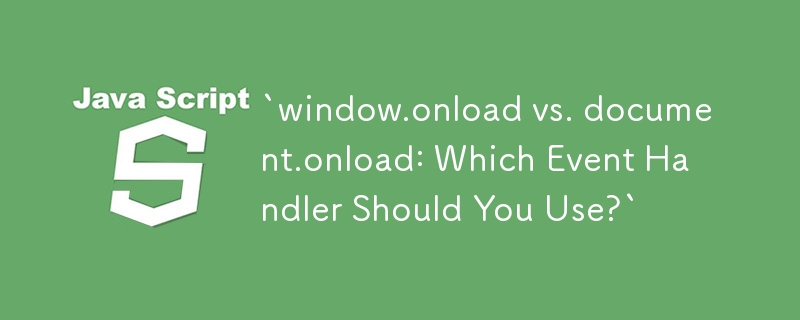

Comparing window.onload and document.onload in Web Development
When working with web development, understanding the behavior and support of different event handlers is crucial. This article delves into the differences between two commonly used event handlers: window.onload and document.onload.
Timing of Execution
Browser Support
Practical Considerations
In most cases, window.onload is the preferred option, as it ensures that all page content has loaded before executing the associated code. document.onload, on the other hand, may be more suitable for situations where the DOM needs to be manipulated immediately, even if external content is still loading.
Alternative Solutions
Due to potential browser compatibility issues, some developers opt for JavaScript libraries like jQuery to handle event triggering. jQuery's $(document).ready() function simplifies the process of checking for DOM readiness.
Historical Note
Traditionally, body.onload was used as an event handler for page load. However, it has since been deprecated in favor of window.onload for improved code organization and separation of concerns.
The above is the detailed content of `window.onload vs. document.onload: Which Event Handler Should You Use?`. For more information, please follow other related articles on the PHP Chinese website!




